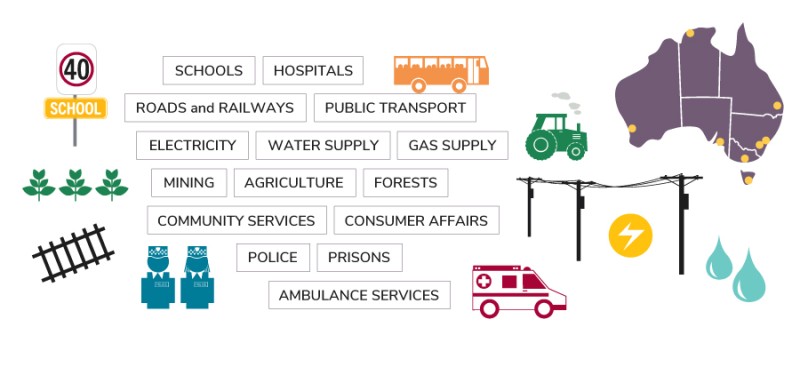The states can refer powers to the federal Parliament but does the federal Parliament have to accept?
Thanks for your question. Section 51(xxxvii) of the Australian Constitution says states can refer – give – the federal Parliament some of their law-making powers. This transfer of power requires both the state and the federal parliaments to pass bills – proposed laws – and is usually agreed to by governments before any bills surrendering or accepting the powers are introduced. However—in theory—the federal Parliament could refuse to pass a bill accepting the referral.
An example of a referral is when each of the states passed laws allowing the federal Parliament to pass the Criminal Code Amendment (Terrorism) Act (2003). The referring Acts included the condition that the Act could not be amended – changed –without the agreement of the states.
The law-making powers of state parliaments.

Parliamentary Education Office (peo.gov.au)
Description
The law-making powers of the state parliaments include:
- Schools
- Hospitals
- Roads and railways
- Public transport
- Electricity
- Water supply
- Gas supply
- Mining
- Agriculture
- Forests
- Community services
- Consumer affairs
- Police
- Prisons
- Ambulance services
This work is licensed under a Creative Commons Attribution-NonCommercial-NoDerivs 3.0 Unported License.
You are free to share – to copy, distribute and transmit the work.
Attribution – you must attribute the work in the manner specified by the author or licensor (but not in any way that suggests that they endorse you or your use of the work).
Non-commercial – you may not use this work for commercial purposes.
No derivative works – you may not alter, transform, or build upon this work.
Waiver – any of the above conditions can be waived if you get permission from the copyright holder.
